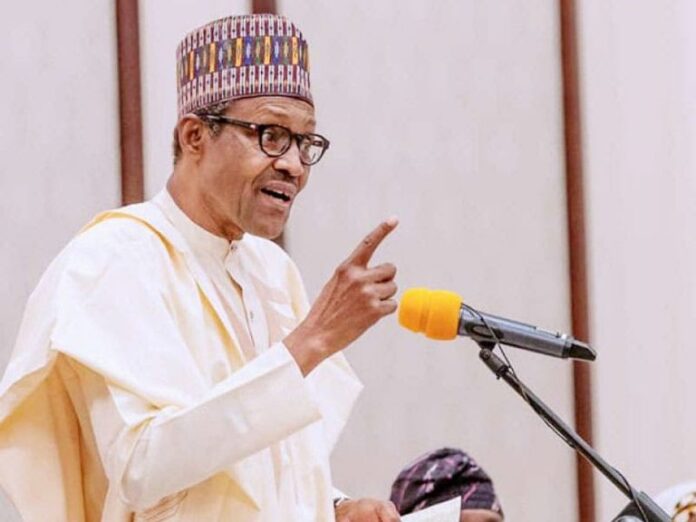By Muhammadu Buhari
A deal would enable Britain to practice the free trade it has long preached and represent recognition by a G7 economy of the benefits of African unity, writes President Muhammadu Buhari of Nigeria
Two years after the United Kingdom’s departure from the European Union, my country Nigeria and her African partners seek a new settlement with Britain: one based on cooperation in fairer – and freer – trade.
The UK and Nigeria share a deep and special partnership. We are champions for peace and security in Africa. We are custodians of the Commonwealth. Yet in recent years our relationship, particularly on trade, has been defined by Britain’s membership of the European Union.
It meant being part of attempts to cajole individual African nations into lopsided European bilateral economic partnership agreements. Nigeria rejected such a deal in 2018, as it sought only to prioritise beneficial terms for raw commodities export to Europe while erecting high tariff barriers to goods manufactured and processed in Africa – stunting job creation. Lack of employment is a key cause of mass migration from Africa to Europe, perversely caused by the very trade policies intended for Europe’s protection.
Now, all this can be changed. Last September, history was made with the UK becoming the first country in the world to sign a memorandum with the African Union’s 54-country Continental Free Trade Area (AfCFTA). This should lead to a UK-African union free trade deal. It would be one made with parity, considering Africa’s $3tn combined GDP is equivalent to that of the United Kingdom, the world’s fifth-largest economy.
Given that the Commonwealth’s 19 African members collectively produce over half the African continent’s GDP, a UK-Africa deal would, concurrently, cause a revitalisation of intra-Commonwealth trade and with it the club itself – a stated British foreign policy aim. This could be further enhanced should we take advantage of the fact those 19 nations’ national laws are built on the principles of English jurisprudence: a common platform from which to better align regulations on investment and certification.
A deal would enable Britain to practice the free trade it has long preached. It would represent recognition by a G7 economy of the benefits of African unity; that job creation and manufacturing in Africa can be an advantage and not a threat to the western world. And it would inject momentum into a renewed Commonwealth, after decades during which the organisation’s potential for economic cooperation was in abeyance while its most influential founding member was bound to European trade policies and unable to act alone. A Commonwealth rebuilt around trade would help replenish this underused club of friends.
But before we reach ahead of ourselves, we must remember that though the purpose of trade deals should be mutual prosperity, favorable terms can be rejected because little attention has been made to persuade public opinion. On both sides, there will be those concerned over competition and terms of trade.
To carry our citizens with us we must start by agreeing on the most favorable trading terms for those products each other does not produce. Fresh and processed foodstuffs, for instance, which cannot be grown in the UK should be prioritised with favorable or no tariffs.
For British companies seeking opportunities in Africa, there should be incentives for sectors heavy in job creation. Here there are millions of highly-skilled, English-speaking but underemployed young people. They are eager to work but without the opportunities that foreign investment can bring to create jobs and build businesses.
This great market is Britain’s opportunity. But, of course, some see it as a threat to where jobs can only be lost and from where immigrants come. They view engagement as a partially open door that will only become wider – unless borders become walls, and Britain a fortress.
That is a mistake. Those who rail against “economic migrants” must realise few people anywhere wish to leave their communities to live in foreign lands. Most would rather stay at home. But the way to help them stay there is not by force, or walls, or racism: it is investment and jobs where they live.




